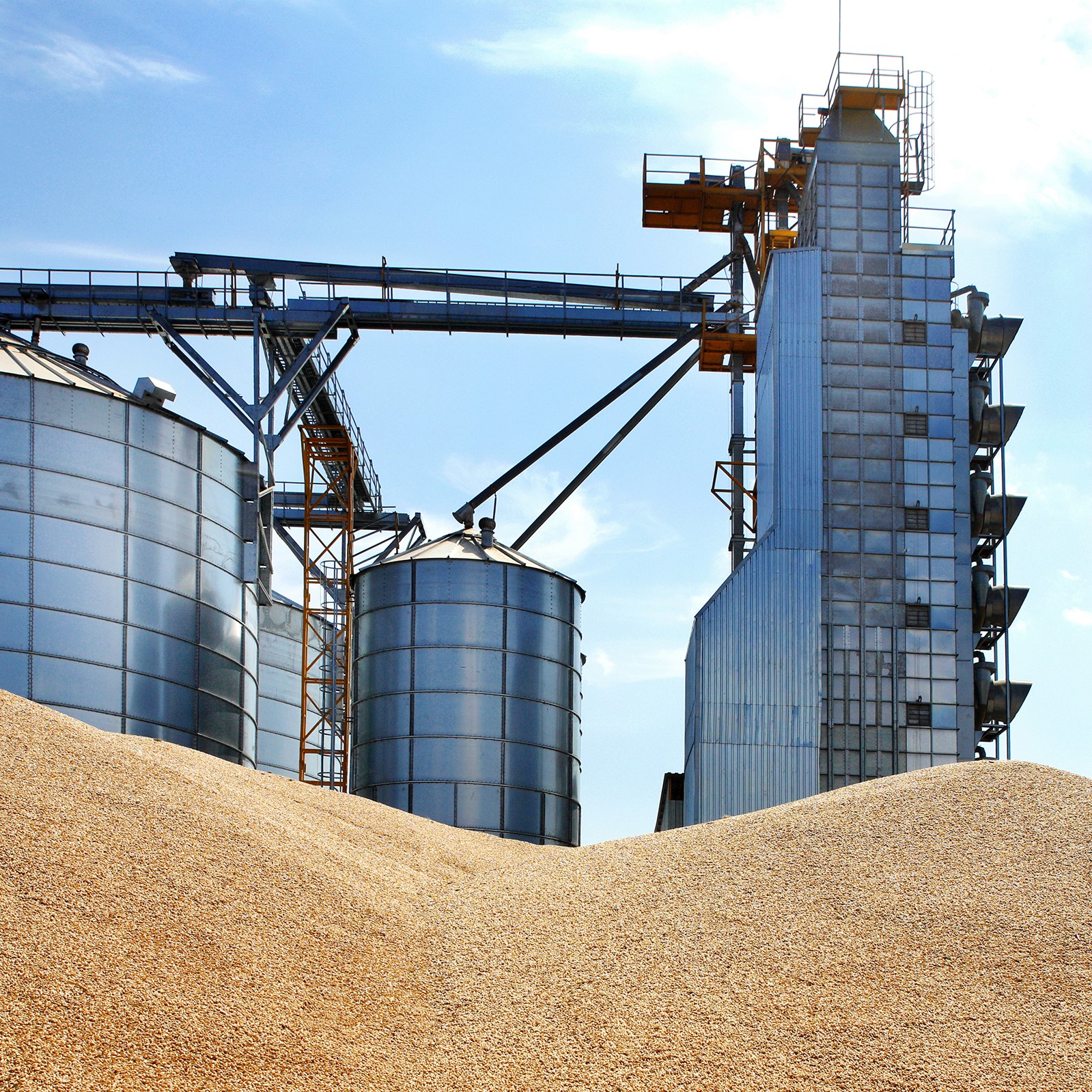
Why Surge Bins Matter in Ethanol Production
Surge bin cleaning plays a crucial role in ensuring continuous ethanol production. Without proper cleaning, blockages can form, causing costly delays and potential damage to the production line.
Ethanol production relies on a steady supply of corn. Therefore, any interruption can lead to significant downtime and increased expenses. Corn first enters the production process through surge bins, which occupy the upper half of 200 to 300-foot concrete silos. Their primary function is to ensure consistent material flow into the lower silo, maintaining continuous operations. As a result, surge bins act as a buffer, keeping the corn moving without constant feeding.
However, grain entering surge bins often comes directly from farms and can be dirty or wet. Consequently, this condition can cause buildup or blockages, reducing storage capacity and slowing grain flow. Operating under these conditions decreases efficiency and can lower the quality of the ethanol produced.
👉 Learn more about OSHA Confined Space Standards and how they apply to surge bin cleaning.
The Need for Silo Shutdown During Cleaning
Proper surge bin cleanouts require a complete shutdown. Therefore, it is crucial to complete the project swiftly and correctly the first time. With over 35 years of experience, Mole∙Master has been cleaning surge bins worldwide. Equipped with the necessary tools and expertise, they tackle the most challenging silo cleaning tasks efficiently and safely.
Every silo cleaning project demands urgency. However, surge bin cleanouts are particularly critical because they require a full shutdown, typically lasting three to five days. To expedite the process, Mole∙Master technicians work around the clock, utilizing proprietary tools like the Big∙Mole System, industrial vacuums, and OSHA-compliant confined space entry methods.
Innovative Tools for Efficient Cleanouts
The Big∙Mole system significantly reduces project time for comprehensive surge bin cleaning. It rapidly frees material for processing or loadout, restoring full storage capacity. This dry process prevents water damage and minimizes cleanup costs. Additionally, the system’s non-sparking equipment ensures safety in dusty or hazardous environments.
Many projects at ethanol facilities require multiple Mole∙Master technicians working continuously. These projects often necessitate OSHA-compliant confined space entry alongside the Big∙Mole system. Mole∙Master technicians receive top-tier training and adhere to all MSHA and OSHA regulations. Each project begins with a safety meeting to discuss potential hazards, emergency procedures, and site-specific details. A Lock-Out/Tag-Out protocol ensures all power sources are properly shut down and tested.
👉 For more industry insights, explore the U.S. Department of Energy’s Ethanol Basics page.
Restoring Operations After Cleaning
During a maintenance shutdown, the conveying system cannot move material. To address this, Mole∙Master employs high-volume industrial vacuum trucks for efficient material removal. Once the surge bin cleanout is complete, the facility returns to full capacity and regular production, minimizing or preventing supply chain disruptions.
👉 Discover more about Grain Handling Safety and why proper surge bin cleaning is essential for safe and efficient operations.
Choose Mole∙Master for Professional Cleaning Services
For expert solutions to your silo or bin cleaning needs, contact Mole∙Master today. With industry-leading tools, extensive experience, and OSHA-compliant practices, they ensure your ethanol production runs smoothly without unnecessary disruptions.
© 2025 Mole∙Master Services Corporation. All rights reserved.

